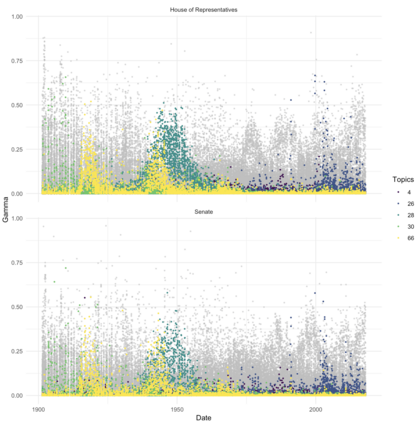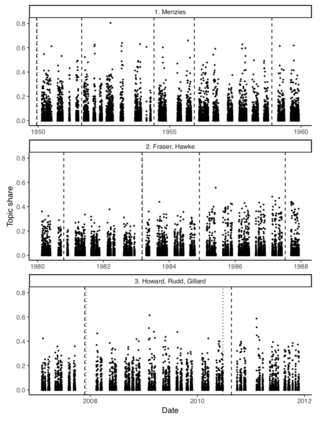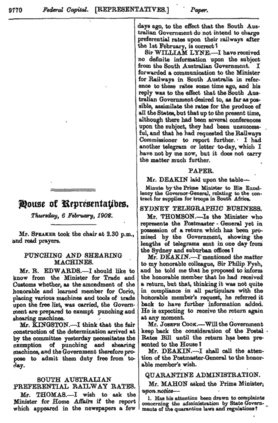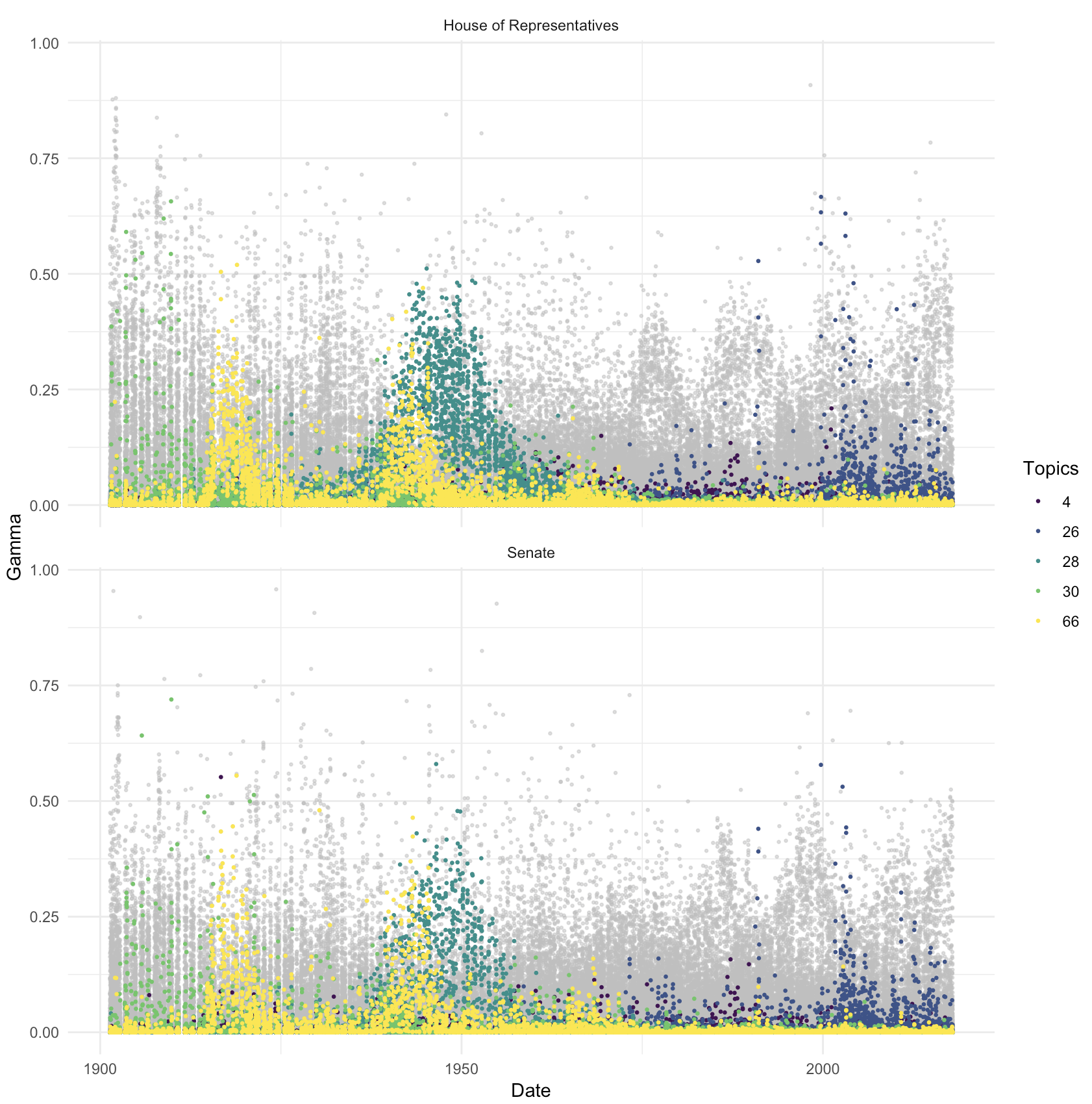Politics and discussion in parliament is likely to be influenced by the party in power and associated election cycles. However, little is known about the extent to which these events affect discussion and how this has changed over time. We systematically analyse how discussion in the Australian Federal Parliament changes in response to two types of political events: elections and changed prime ministers. We use a newly constructed dataset of what was said in the Australian Federal Parliament from 1901 through to 2018 based on extracting and cleaning available public records. We reduce the dimensionality of discussion in this dataset by using a correlated topic model to obtain a set of comparable topics over time. We then relate those topics to the Comparative Agendas Project, and then analyse the effect of these two types of events using a Bayesian hierarchical Dirichlet model. We find that: changes in prime minister tend to be associated with topic changes even when the party in power does not change; and the effect of elections has been increasing since the 1980s, regardless of whether the election results in a change of prime minister.
翻译:议会的政治和讨论很可能受到执政党及相关选举周期的影响。然而,对于这些事件在多大程度上影响到讨论,以及这种变化如何随时间推移而变化,我们鲜为人知。我们系统地分析澳大利亚联邦议会的讨论如何因两种类型的政治事件而发生变化:选举和更换总理。我们使用1901年至2018年澳大利亚联邦议会根据抽取和清理现有公共记录而新建的一组数据来说明其言论。我们使用一个相关主题模型来获取一套可比议题,从而减少了该数据集的讨论的广度。我们然后将这些议题与比较议程项目联系起来,然后使用巴伊西亚等级的Dirichlet模式来分析这两类事件的影响。我们发现:总理的变动往往与主题变化有关,即使当掌权的政党没有改变;选举的效果自1980年代以来一直在增加,无论选举结果是否导致总理的更替。







